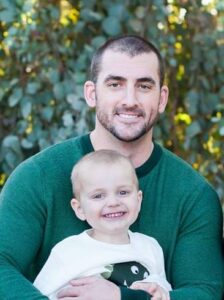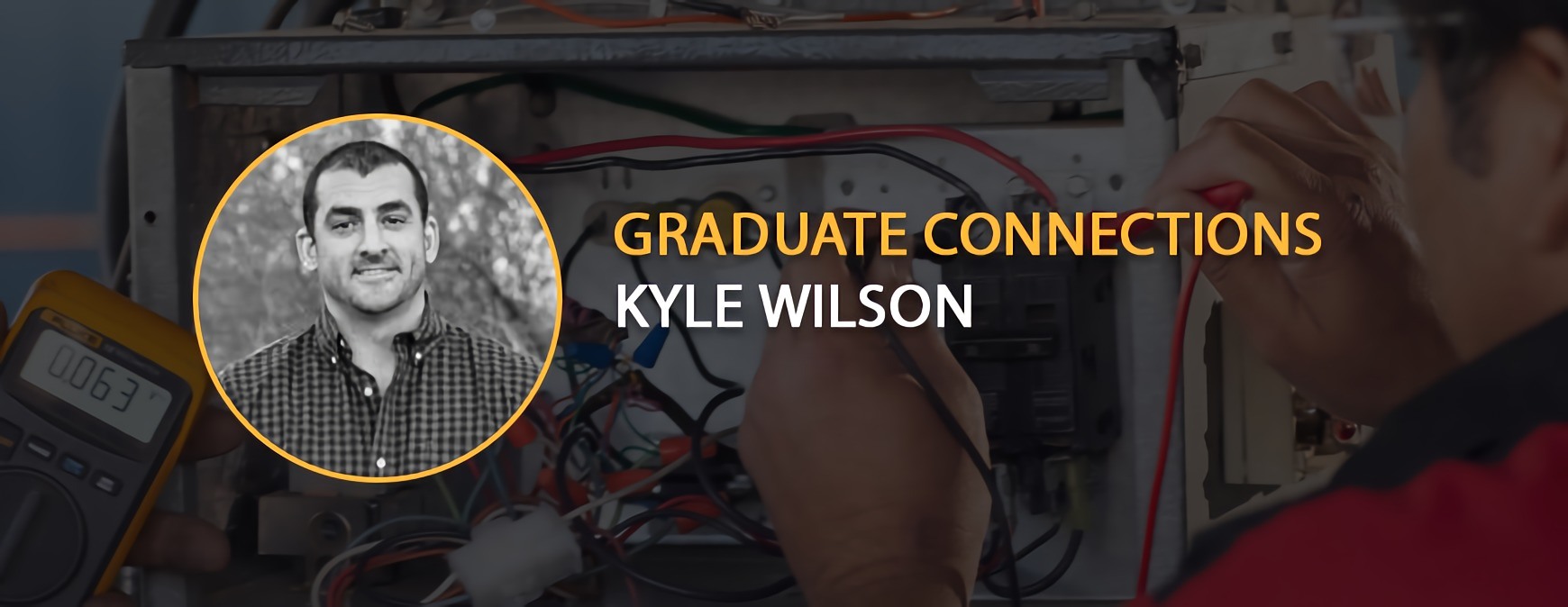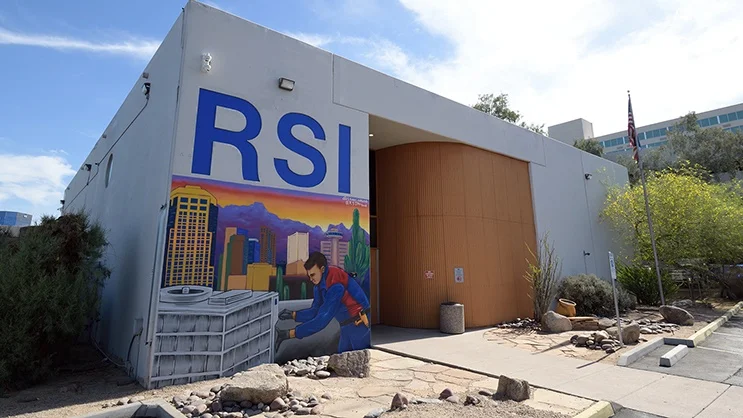RSI is a Great Training Option for Everyone
Learn more about how we can prepare you to advance your career.
Kyle, 36, graduated from the 15-month Associate of Occupational Studies in Mechanical Maintenance Engineering (MME) program at RSI in 2011.
Thanks for sharing your story, Kyle. What brought you to RSI?
I’m a veteran of the Marine Corps. I was in the military for six years – four years active overseas and two years reserve. I needed a job when I got out, so I worked at a gas company with my uncle for two years, but I didn’t really like it.
My friend’s dad owned an air conditioning company and he asked me to go work for him. That’s how I got into the field. I ran with it from there. I spent about four years doing installs and grunt work for different companies before I went to RSI to learn the technical side.
Thank you for your service, Kyle. What made you decide to go to RSI after four years in the field?
Get Started on the Path to a New Career
Fill out our form to learn how we can help you change your life.
I saw the money my boss made doing something I thought I could do, so I thought, why not? It was perfect timing. The economy went bad and my company laid me off. I had two options: go to school for something I’d already invested a certain amount of time in or start something new.
That’s when I decided to enroll. I knew how installation and duct work worked, but I didn’t know how air conditioning worked. I had the GI Bill and I’d heard good things about RSI, so I figured I should do it. 
Did you enroll in the MME program initially, or add it after completing another program?
I was told that if I wanted to have my college paid by the GI Bill, I needed to enroll in a degree program. So that was the program for me!
What was your favorite part of the RSI program, and why?
Probably the hands-on work, the troubleshooting, trying to figure out what’s wrong with a unit. That’s when you get to apply what they’ve taught you. That was the fun part.
Was having prior experience in the field beneficial?
I don’t think there was any real benefit beyond maybe knowing what certain parts were called. I had no idea how refrigeration and air conditioning worked or how to fix things. I guess the only real advantage was I had more experience on my résumé when employers called. But there was no real advantage in the program over people who had zero experience coming in.
Where did you work after graduating?
I first went to work for a company in Mesa. I believe they hired me because I had four years installation experience. They hired me as an installer and said I’d be a tech in about five months, but that didn’t happen, so I left and went to another company.
A little while later I went to work with Karl Meyer AC and Heating, and I was there for about 3½ years. Karl is the one who really taught me everything and convinced me, in a roundabout way, that I could do my own thing. He was just listed as the second best air conditioning company in the valley. I had to call and congratulate him!
So you have your own company now?
Yes, this is my fourth year being self-employed with Kyle Wilson Heating & Cooling, LLC. I’ve got more work than I can handle!
 What made you leave to start your own business?
What made you leave to start your own business?
Karl kind of told me he thought I couldn’t do it, so as a Marine, I took that as a challenge! Karl’s a great guy, an awesome employer, and he taught me everything I know. I literally owe my whole company to him, but we butted heads a little after 3½ years. When he said I couldn’t do this, my only answer was to say, “We’ll see!” Four years later, here we are. We talk and we pass work back and forth, so it’s all good. He really is a great guy. I wouldn’t be where I am today without him.
How is business going for you?
It’s going way better than I expected. I’ve got too much work. I’ve had to expand to a couple of trucks, and I have four guys working for me. I’ve even had to turn down work, but that’s a good problem to have. I’ve saved a lot of people a lot of money and built up a lot of trust by running my business in a very, very honest way. If you’re dishonest, it will catch up with you, so do the right thing by your customers. My old boss taught me that. There are people who push for larger sales than they need to be. Don’t go that route or believe them. Don’t care more about the bottom line than running an honest, sustainable company.
What advice would you give to new students just starting out at RSI?
Ignore the distractions, like the younger kids who don’t want to be there. If you want to be there, be there. Pay attention and focus on what the teachers are saying. They’re getting paid to train you, so ask questions. If you don’t understand something, it’s not a big deal. I’ve been doing this 12 years; there are still things I don’t understand and have to call technical support for! So ask questions, try things, and don’t worry, because you’re always going to have the opportunity to earn money.
What advice do you have for graduates as they enter their new careers?
Hydrate! You’re going to sweat! But seriously, don’t come out of RSI and expect to walk into a technician job. You’ve got to pay your dues. You’ve got to run duct work, install units—all the grunt work first. Then, once you’ve proven that you’re reliable, they won’t just throw you in front of a unit. You need on-the-job training. No matter what you learn in school, it’s going to take you a while to figure out what’s wrong with a unit. You’ve got to build your experience, so be patient.
Is an RSI education worth it?
Your résumé looks a lot better when you have an RSI education. I got my first three jobs out of school because I had RSI on my résumé. It instills confidence in people who are hiring. You’ve been to school and you understand how refrigeration and air conditioning works. It’s a good opportunity. Take advantage of it, but be prepared, because it’s hard work. Yes, your RSI education will likely get you a job, but the rest is up to you.
The school was awesome for me. They’ll teach you how air conditioning works, but don’t leave RSI thinking you know everything, because you don’t. You’ve got to pay your dues.
If you’re good, you will get paid. The ceiling for most HVAC guys is like $30 an hour, but I pay my guy $50 an hour. Why? Because he shows up, he works hard, he knows his stuff and he doesn’t complain. If you have a good attitude, do your job, and hydrate, you will get rewarded! There’s a shortage of good people around here. People are looking to hire you. So if you’re good, you’re never going to be without a job. If you’re good with hard work, you’re going to get rewarded.
If you’re an RSI graduate and would like to share your success story and be an inspiration to others, please email [email protected] to be considered for a Graduate Connection interview. Please include details such as your graduation date (month/year), and program.




